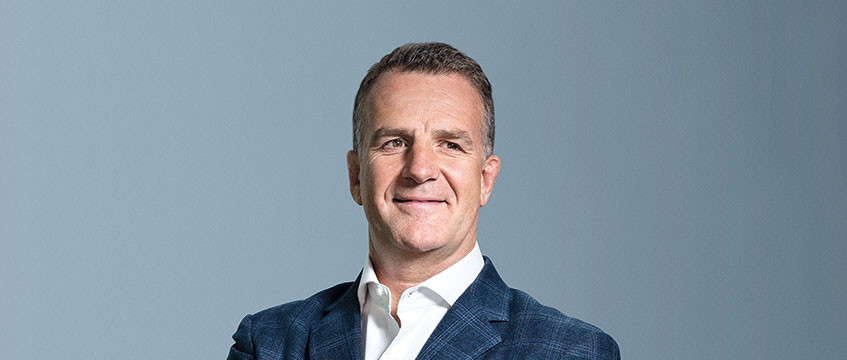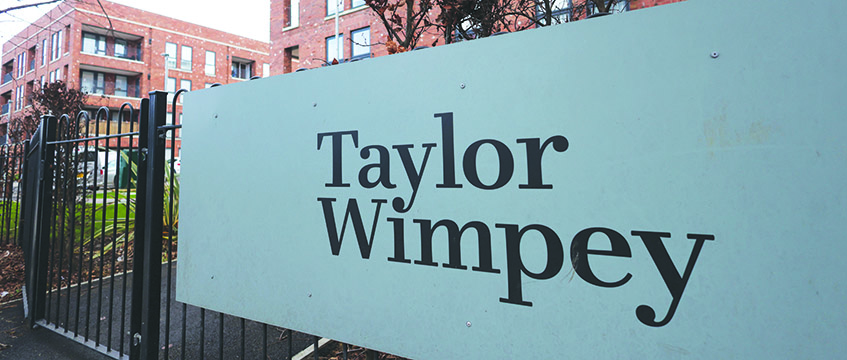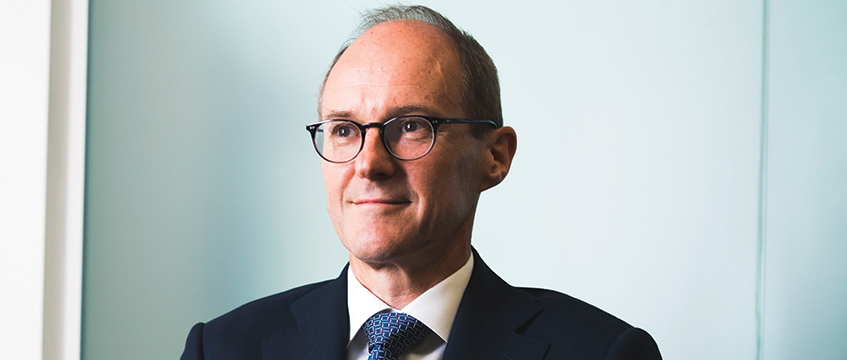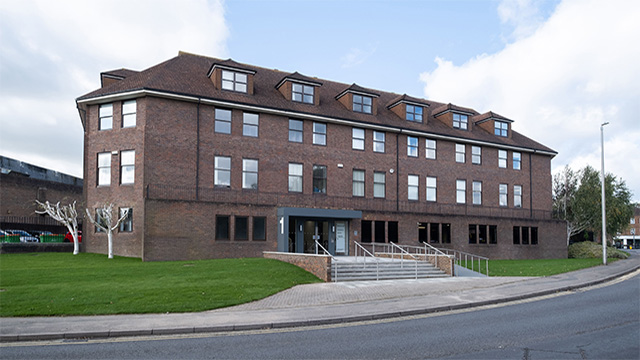Q&A with CBRE’s chief executive for the UK and Ireland Ciaran Bird
This article was written for EG’s Starting Out in Real Estate guide, click here to view the digital edition >>
Sarah Jackman speaks to CBRE’s divisional president for advisory services, CEO UK & Ireland about his career and why it inspired him to spearhead an apprenticeship programme at the firm a decade ago.
You began your career in real estate in 1987. How did you go about researching careers in the industry at that time?
At the age of 16, I wasn’t really sure what I wanted to do. However, I decided I was leaving school – against the wishes or advice of my school and parents. When my parents asked me, “how are you going to earn a living?” I said, “I’m going to play rugby and I’m going to go and sell big houses.”
This article was written for EG’s Starting Out in Real Estate guide, click here to view the digital edition >>
Sarah Jackman speaks to CBRE’s divisional president for advisory services, CEO UK & Ireland about his career and why it inspired him to spearhead an apprenticeship programme at the firm a decade ago.
You began your career in real estate in 1987. How did you go about researching careers in the industry at that time?
At the age of 16, I wasn’t really sure what I wanted to do. However, I decided I was leaving school – against the wishes or advice of my school and parents. When my parents asked me, “how are you going to earn a living?” I said, “I’m going to play rugby and I’m going to go and sell big houses.”
My dad reminded me that, at that time, rugby was amateur, so that wasn’t a brilliant idea. And he said: “What knowledge do you have? How are you going to get into a career in property or estate agency?”
I wrote to 200 firms and I had interviews with three chartered surveyors. I didn’t know what a chartered surveyor was and I didn’t know what commercial property was, but I went to the interviews and was offered a job by two of them as the office junior.
I started a job at Fletcher King, above [restaurant] Langan’s in Stratton Street, Mayfair. I was alien to the world of business, let alone property. But one thing my mum and dad taught me was to introduce myself to as many people as I could, be respectful and work as hard as I possibly could.
Within a six-month period, I had a couple of people say, “why don’t you come and join my department?” I was invited to become a junior within the retail agency team and that is when it all started.
But the answer to your question is – frustratingly – I had no knowledge whatsoever of the property industry.
What is CBRE?
CBRE is a global multi-disciplinary commercial real estate services and investment company, whose roots in the UK date back to 1773, when William Ellis set up shop in London, working as an “upholder and appraiser”.
Today, it has more than 500 offices in more than 100 countries. It provides services to meet client needs across a range of areas, such as leasing and valuation, across property types including offices, industrial and residential, and across different industries, including data centres and life sciences.
You mentioned your love of playing rugby. How did you balance that with work in the early years of your career?
The world was very different in those days. When I came into property at the age of 16, there were many internationals that worked for the big corporates – because, remember, rugby was amateur at that stage.
As I was an up-and-coming rugby player, it was a good talking point and opened doors for me. I had been playing for six or seven years at top-grade rugby, but in an amateur world, when rugby turned professional.
I was working at Dalgleish & Co and had a decision to make. I was offered a rugby contract with the opportunity of working mornings and training afternoons. Malcolm Dalgleish was very supportive. It was an incredibly exciting time. I was first in the office, then I would run to the Tube at midday and train every afternoon.
That was pretty full-on for the best part of three years. But, at the same time, it was amazing. That came to an end when the rugby club realised it needed full-time players.
I was offered a four-year contract and, looking back, it was a hugely emotional decision for me. But I was loving property. I wanted to pay back the loyalty and support that Dalgleish had given to me, and I took the decision to give up professional rugby. But I was privileged to play in both an amateur era and a professional one.
In 2013, you were appointed to your current position. What are the skills that have been key to effective leadership?
There are different forms of leadership, but I have always, and will always, lead by example.
I would never ask anybody in the whole of CBRE to do anything I would not be prepared to do myself. I am incredibly competitive, hard-working and loyal. I feel like I am one of the team. I’m not anything special. And I expect everyone to behave in a similar way.
I have always come from this team culture, with my sporting background, and teams always outperform individuals. I have led and built our business, along with many colleagues here at CBRE, where the team comes together to the benefit of our clients. It is a simple strategy that always wins.
You established CBRE’s apprenticeship programme in 2013. What were your motivations driving that?
One of the reasons I set up our apprenticeship scheme – one of the reasons I spend a lot of time promoting the industry to diverse communities and people that do not come through the traditional backgrounds – is to respond to my frustration, many years ago, that my careers officer at school was absolutely hopeless.
All they talked about was banking, accounting and the usual suspects. I sit here today, many years further forward, and I am still very frustrated at the lack of knowledge in schools. We have not improved dramatically.
One of the policies I have put in place here since I have been chief executive is that every apprentice and every graduate has to go back to their school. We go into 100 schools a year promoting the industry.
But, a decade ago, the word “apprentice” was almost frowned upon. Nobody had an apprenticeship scheme. I went and did a lot of research. Although I had not been a true apprentice, I felt like I had been, and I thought this would be the opportunity to offer everybody from every background a door opener to the industry.
But it was a big ask. I wanted to take 10 apprentices on what would be a four-to-five year programme, and that was well over £1m investment before you get a return. I presented it to our board and I was nervous that they may not have supported me. But it was unanimous. Everybody said: “absolutely”.
I then interviewed all the candidates, personally. We had 107 applicants in the first year but only six were from women. At that time, the ethnic diversity was really low. I think that is probably because we didn’t have the experience of how you got into a broader spectrum of schools.
However, we took on 10 brilliant individuals from really interesting backgrounds, three of them female. Some of them are still here today – absolute superstars. And the programme has gone from strength to strength.
We have now got well over 100 apprentices. Over 50% of our intake is female and there is a high percentage – increasing every year – of ethnic diversity.
In the way they develop and their loyalty, I see myself in most of them.
It is almost as if they have been given an opportunity that they never thought they would get. Because of that, they are willing to work hard to achieve their goals. So it has been a massive success alongside our graduate programme. It fits and works very well. It is a real opportunity for individuals who would never have come into the industry.
Many other companies have set up great apprenticeship schemes and many of our competitors are also now really focused on opening up to diverse communities. Everybody in the sector has a responsibility to try and help promote this wonderful industry across the UK and, frankly, across the world. It is an amazing industry, that offers opportunities to people wanting to go in so many different directions. There’s something for everyone.
To send feedback, e-mail sarah.jackman@eg.co.uk or tweet @EGPropertyNews
View the digital edition of Starting Out in Real Estate >>
Photo © CBRE











